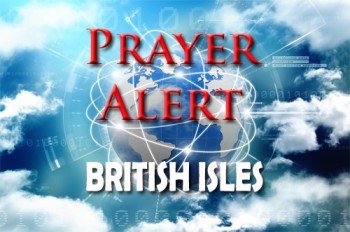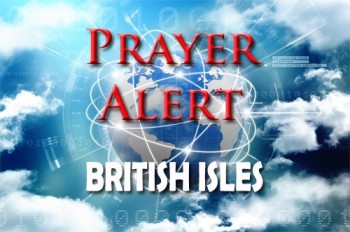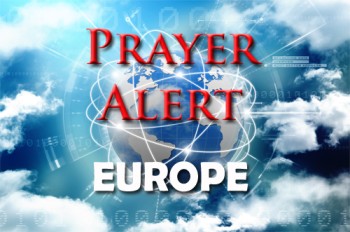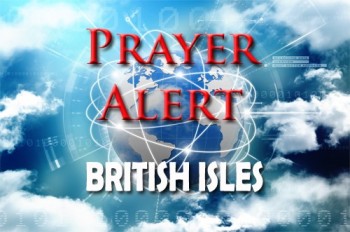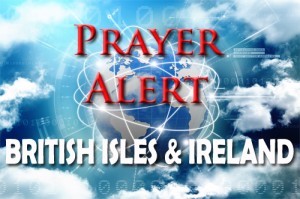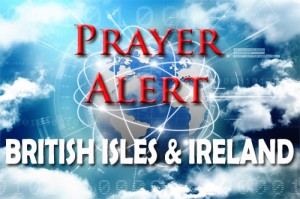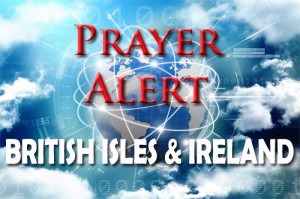Displaying items by tag: postBrexit
Brexit: unfinished business
The Northern Ireland protocol was agreed to ensure free movement of trade across the Irish land border after Brexit. The legal text is now being looked at to nail down details. However, some are concerned that there are still things to square off to ensure an agreement is sellable to EU member states: the Democratic Unionist Party (DUP) and some Tory MPs who continue to insist that there remains more work to do. Pray for the language surrounding the talks to be increasingly positive. Also farms risk going out of business. The UK has replaced EU’s subsidies to farmers with ‘payments for public goods’ (SFI). Each year ministers cut how much farmers get paid under the old scheme while they introduce new ones. Farmers’ subsidies were cut by 22% last year, but only 0.44% of the promised budget was spent on SFI. So where is the money going?
Brexit: Northern Ireland checks on British goods
The UK wants to change the Brexit process to allow goods to circulate more freely between Great Britain and Northern Ireland, as current rules impose too many barriers to the sale of products. The EU have set out proposals that involve reduced checks on goods and medicines. The January post-Brexit arrangement, the Northern Ireland Protocol, was introduced to help prevent border checks between Northern Ireland and the Republic of Ireland. Both sides agree in differing degrees that the protocol poses many difficulties. EU and UK talks to reach a better arrangement are likely to go on for several weeks.
France: fishing in UK waters
Three-quarters of small French fishing boats could be denied access to British waters under a post-Brexit regime in a move that risks further damaging Anglo-French relations. The UK government had granted only 12 out of a total of 47 applications for licences for the French vessels under 12 metres long to fish the UK’s inshore waters. France’s maritime minister, Annick Girardin, condemned the decision. ‘It is a new refusal by the British to implement the conditions of the Brexit agreement despite all the work we have done together. French fishing should not be taken hostage by the British for political ends.’ In May, France’s response to post-Brexit fishing restrictions around the island of Jersey was described as ‘pretty close to an act of war’ by fishing community leaders in St Helier. This week Jersey refused licences to 75 French fishing boats. The UK said it would consider further evidence to support remaining bids for fishing rights See
Royal Navy ships withdraw
Two Royal Navy ships are returning home after a protest by French fishermen over post-Brexit rights in Jersey’s territorial waters ended. Sixty French boats had been blockading the port of St Helier, which is why the two warships were deployed. The fishermen said their rights were being unfairly restricted by licences issued under the new system, but after ‘positive’ discussions between the two sides they returned home. The French government expressed the hope that the dispute would be swiftly resolved and that the new trade deal would be fully implemented. Boris Johnson said he was pleased the situation had been resolved for now, but the Government is still ‘on standby’ if Jersey needs further assistance.
Post-Brexit doubts
President Trump publicly doubted Theresa May's Brexit plan: ‘I think we have to take a look seriously whether or not the UK is allowed to trade with us’. The British parliament will vote on the withdrawal agreement on 11 December. Jean-Claude Juncker warned MPs planning to send May back to Brussels by voting down her Brexit deal that it would take the EU just ‘seconds’ to crush their hopes. President Macron said that the UK will be trapped in a customs union after Brexit, unless Downing Street offers European fishermen full access to British waters during the trade negotiations. However, Iceland’s foreign minister said, ‘The British could learn from Iceland when it comes to creating a new fisheries policy after Brexit’ (see). We can pray for God to ignite political wisdom and accurate insights in all politicians and media commentators. Pray also for inspired visions and purposes to be birthed in captains of commerce and industry.
Post-Brexit: Britain and China free trade
Britain has given a strong message to Chinese companies that it is fully open for business as it prepares to leave the EU next year, and that China is one of the countries with which Britain would like to sign a post-Brexit free trade deal. Following talks between British trade minister Liam Fox and China’s commerce ministry, they have agreed to look at the possibility of reaching a ‘top notch’ free trade agreement after Brexit. They met at the British Ambassador’s residence in Beijing and signed memorandums of understanding between British and Chinese firms and institutions. China also said that it hoped Britain would use a major import fair in November in Shanghai, which President Xi is overseeing, to expand its exports to China. Dr Fox and Prince Andrew are expected to be leading Britain’s delegation.
EU: plans for Britons in Europe post-Brexit
Home secretary Sajid Javid, after unveiling a new ID scheme for EU citizens living in Britain, has called on EU leaders to publish concrete plans to preserve the rights of British citizens living on the continent post-Brexit. He is concerned that other EU member states have not stated how they are going to support Britons in Europe, when the Government has advanced plans for a new status for the estimated 3.4 million EU citizens living in the UK. The European parliament’s chief Brexit coordinator, Guy Verhofstadt, said there were ‘serious concerns’ over all citizens impacted and affected by Brexit. ‘British in Europe’ complained last week that they represented the forgotten victims of Brexit, with neither Brussels nor London taking up their fight to retain their rights to maintain free movement and continue to work freely and offer services across the continent. The ‘right of return’ to the UK without any immigration barriers was also raised.
UK trade networks
UK’s trading relationships will soon no longer be tied to the EU. Dr John Sentamu reflected on future trading relationships with the world's poorest countries. Millions still live in poverty, lacking access to clean water, education, decent jobs and opportunities. Global economic growth has delivered prosperity for some, leaving others behind. But international trade, when done the right way, is an opportunity for the poor - creating jobs, livelihoods, and hope for the future - while generating national wealth to pay for education, training, roads, clinics and hospitals. Recently experts in these countries highlighted a straightforward agenda for what they believe trade with the UK should look like after Brexit. They want their countries to be able to develop their own economies, to be able to trade more closely with their nearest geographical neighbours, and to industrialise and add value to what they produce.
Post-Brexit farming changes
To grow and prosper, UK agriculture needs to question its approach and thinking. With this in mind, the 2018 farming conference, which ran from 3 to 5 January, was on ‘Embracing Change’. The opportunities for our farming sector are huge, but farmers need to realise what changes must be made - at personal, family and business levels - for the sector to progress. The speakers came from around the world. They shared their approaches to tackling personal and professional adversity under headings of ‘behavioural changes needed within family businesses’ and ‘digital disruption taking British farming into a new realm of possibilities.’ Michael Gove, secretary of state for the environment, spoke of potential post-Brexit farm payments and systems. Farmers can expect change, with a capital C.
